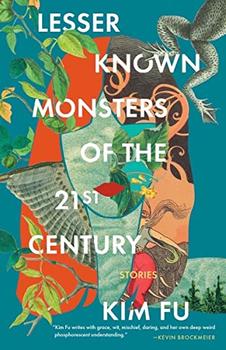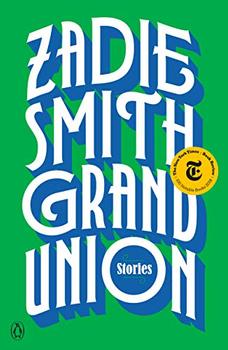Summary | Excerpt | Reviews | Beyond the book | Read-Alikes | Genres & Themes | Author Bio

Thirteen Stories
by Helen DeWittAt last a new book: a baker's dozen of stories all with Helen DeWitt's razor-sharp genius.
For sheer unpredictable brilliance, Gogol may come to mind, but no author alive today takes a reader as far as Helen DeWitt into the funniest, most yonder dimensions of possibility. Her jumping-off points might be statistics, romance, the art world's piranha tank, games of chance and games of skill, the travails of publishing, or success. "Look," a character begins to explain, laying out some gambit reasonably enough, even if facing a world of boomeranging counterfactuals, situations spinning out to their utmost logical extremes, and Rube Goldberg-like moving parts, where things prove "more complicated than they had first appeared" and "at 3 a.m. the circumstances seem to attenuate."
In various ways, each tale carries DeWitt's signature poker-face lament regarding the near-impossibility of the life of the mind when one is made to pay to have the time for it, in a world so sadly "taken up with all sorts of paraphernalia superfluous, not to say impedimental, to ratiocination."
In this erudite collection of 13 stories, Helen DeWitt explores the theme of stymied creativity, particularly as a result of financial and bureaucratic intrusions into the process of making art. The characters are unrelentingly charming and this is due to DeWitt's powers of description as well as her unconventional linguistic choices. Her quirky narrative choices and use of jargon may alienate some readers, however. There are somewhat random barrages of math, a few long descriptions of computer programming, extraneous footnotes, and mentions of obscure literary movements and authors...continued
Full Review
(651 words)
This review is available to non-members for a limited time. For full access,
become a member today.
(Reviewed by Lisa Butts).
In DeWitt's story "Famous Last Words," two characters argue over the interpretation of an essay by Roland Barthes called "The Death of the Author," and whether its message is still relevant for writers.
Roland Barthes was a French philosopher and literary critic. He was born in 1915 in Cherbourg, France and attended the Sorbonne where he studied literature, linguistics, and Greek tragedy. He went on to become a respected professor, teaching at the French Institute in Bucharest, the University of Alexandria in Egypt, and Johns Hopkins University in Baltimore, among others. He was also a celebrated author, penning texts on topics ranging from love to art to semiotics (the study of signs and meaning).
Some of Barthes' most influential ...
This "beyond the book" feature is available to non-members for a limited time. Join today for full access.

If you liked Some Trick, try these:

Lesser Known Monsters of the 21st Century
by Kim Fu
Published 2022
A dazzling and daring debut story collection by PEN/Hemingway finalist, Kim Fu.

by Zadie Smith
Published 2020
Zadie Smith has established herself as one of the most iconic, critically respected, and popular writers of her generation. In her first short story collection, she combines her power of observation and her inimitable voice to mine the fraught and complex experience of life in the modern world.
Never doubt that a small group of thoughtful, committed people can change the world...
Click Here to find out who said this, as well as discovering other famous literary quotes!